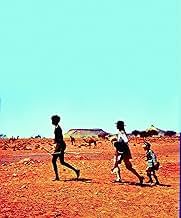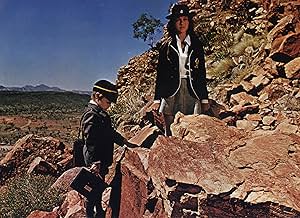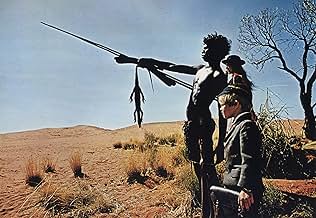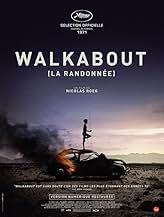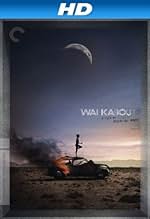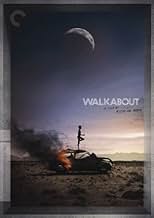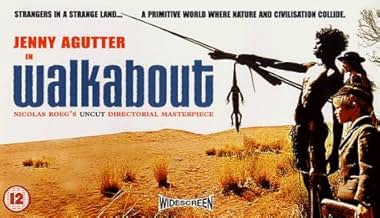अपनी भाषा में प्लॉट जोड़ेंTwo city-bred siblings are stranded in the Australian Outback, where they learn to survive with the aid of an Aboriginal boy on his "walkabout": a ritual separation from his tribe.Two city-bred siblings are stranded in the Australian Outback, where they learn to survive with the aid of an Aboriginal boy on his "walkabout": a ritual separation from his tribe.Two city-bred siblings are stranded in the Australian Outback, where they learn to survive with the aid of an Aboriginal boy on his "walkabout": a ritual separation from his tribe.
- निर्देशक
- लेखक
- स्टार
- पुरस्कार
- 1 जीत और कुल 1 नामांकन
- Black Boy
- (as David Gumpilil)
- Man
- (as Robert McDara)
- No Hoper
- (as Pete Carver)
- German Scientist
- (as Noelene Brown)
- Radio Announcer
- (वॉइस)
- (बिना क्रेडिट के)
फ़ीचर्ड समीक्षाएं
The film is about nature, and man's relationship with it. If a civilised person were left out in the desert, then they would soon die. But, as this film shows, there are people and creatures living out there quite happily.
The film has been criticised for having a weak beginning and a weak end. But where does the story of this film start? And where and when would you end it? Yes you can end it when the two children get back to civilisation. But does the story end there? No. Because of their experiences, things are never going to be the same again. And for them, the story has not finished, it is only just beginning.
I have seen this film several times and I notice something different every time I see it.
On a less superficial level it is a film with a point-something along the lines of the graciousness of Aborigines and their ability to live in harsh surrounds, and the destructive nature of suburban life in a flat in a major city.
I think it would be a film, like Jedda, that will always be on reference for the Australian Outback, Aboriginals and the modern society which brought a European civilisation to their land.
क्या आपको पता है
- ट्रिवियाLuc Roeg was actually sun-burnt in the scene where the aboriginal boy treats his back by rubbing him with fat from a wild boar. Director Nicolas Roeg thought it would make a good scene for the film so he picked up the camera and shot it.
- गूफ़The credits name the actor playing "Black Boy" as David Gumpilil. It should be David Gulpilil.
- भाव
Narrator: [last lines - from "Poem XL" by A.E. Housman's "A Shropshire Lad"] Into my heart an air that kills, From yon far country blows: What are those blue remembered hills, What spires, what farms are those? That is the land of lost content, I see it shining plain, The happy highways where I went, And cannot come again.
- क्रेज़ी क्रेडिटAfter the credits, there is a flash of white light on the screen and as it becomes a black screen, radio tuning is heard while the words "rien ne va plus" are shown.
- इसके अलावा अन्य वर्जनA director's cut of this movie was released in 1997 with 5 additional minutes. This cut is identical to the original British release version (100 minutes): the film was shortened by five minutes for its original American release.
- कनेक्शनEdited into Terror Nullius (2018)
टॉप पसंद
- How long is Walkabout?Alexa द्वारा संचालित
विवरण
- रिलीज़ की तारीख़
- कंट्री ऑफ़ ओरिजिन
- भाषाएं
- इस रूप में भी जाना जाता है
- Encuentro de dos mundos
- फ़िल्माने की जगहें
- उत्पादन कंपनियां
- IMDbPro पर और कंपनी क्रेडिट देखें
बॉक्स ऑफ़िस
- बजट
- A$10,00,000(अनुमानित)
- दुनिया भर में सकल
- $1,888
इस पेज में योगदान दें



